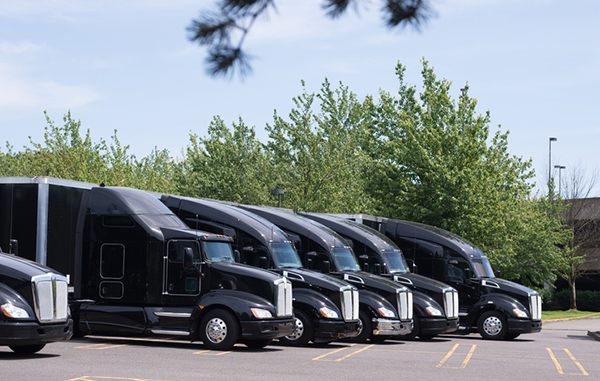The American Center for Mobility (ACM) in Ypsilianti Township Monday announced it will research and test automated convoy platooning in a two-year study that will feature both military- and commercial-grade trucks.
The research team is made up of organizations from defense, academia, and the public sector. The study aims to autonomously control an entire fleet of vehicles while optimizing fuel efficiency and safety.
“This is an unprecedented study with extensive implications, as the project touches on many aspects of the CAV ecosystem,” says Jeff Rupp, chief technical officer for ACM. “Automated truck platooning promises increased fuel efficiency, improved safety, and greater throughput on America’s roads. This project is an important step to commercializing and safely deploying the technology.”
Participating organizations include Auburn University in Auburn, Ala.; University of Michigan – Dearborn; the Michigan Department of Transportation; the U.S. Department of Energy’s National Renewable Energy Laboratory in Golden, Colo.; and the U.S. Army and Tank Automotive Research, Development and Engineering Center (TARDEC) in Warren.
Experts predict it will take seven to 10 years for autonomously controlled trucks to be safely deployed. The research group will address deficiencies in prior platooning work studies in an attempt to shorten that window, as well as find additional testing opportunities in controlled environments and on public roads.
“Unmanned driving has the potential to be a breakthrough capability that can enhance our mission efficiency many times over, and the potential that advancing this work at ACM brings is extraordinary,” says Bernie Theisen of ground vehicle robotics for TARDEC. “But what we’re most excited and passionate about are the safety advances we can make here and with our other partners.”
ACM’s facility will be used to test increased reliability of multi-truck convoys traveling at highway speeds on elevated on-ramps, bridges, overpasses, and tunnels in mixed vehicle traffic scenarios.
“Truck platooning technology has the potential to make our streets safer and increase efficiency in the transportation industry. Those are the kind of transformational research outcomes that drive us at Auburn Engineering,” says Christopher B. Roberts, dean of Auburn University’s Samuel Ginn College of Engineering. “Our college is committed to staying at the forefront of this area of research, and we are excited to partner with organizations that share this commitment.”
If everything goes as planned, participating organizations will conclude the study with a high-speed truck convoy demonstration staged at ACM.
ACM is a nonprofit testing, education, and product development facility for future mobility. It is one of 10 U.S. Department of Transportation designated Automated Vehicle Proving Grounds in the U.S. It is also part of PlanetM, a collaborative that represents Michigan’s ecosystem, connecting resources and opportunities for its consortium of members.






